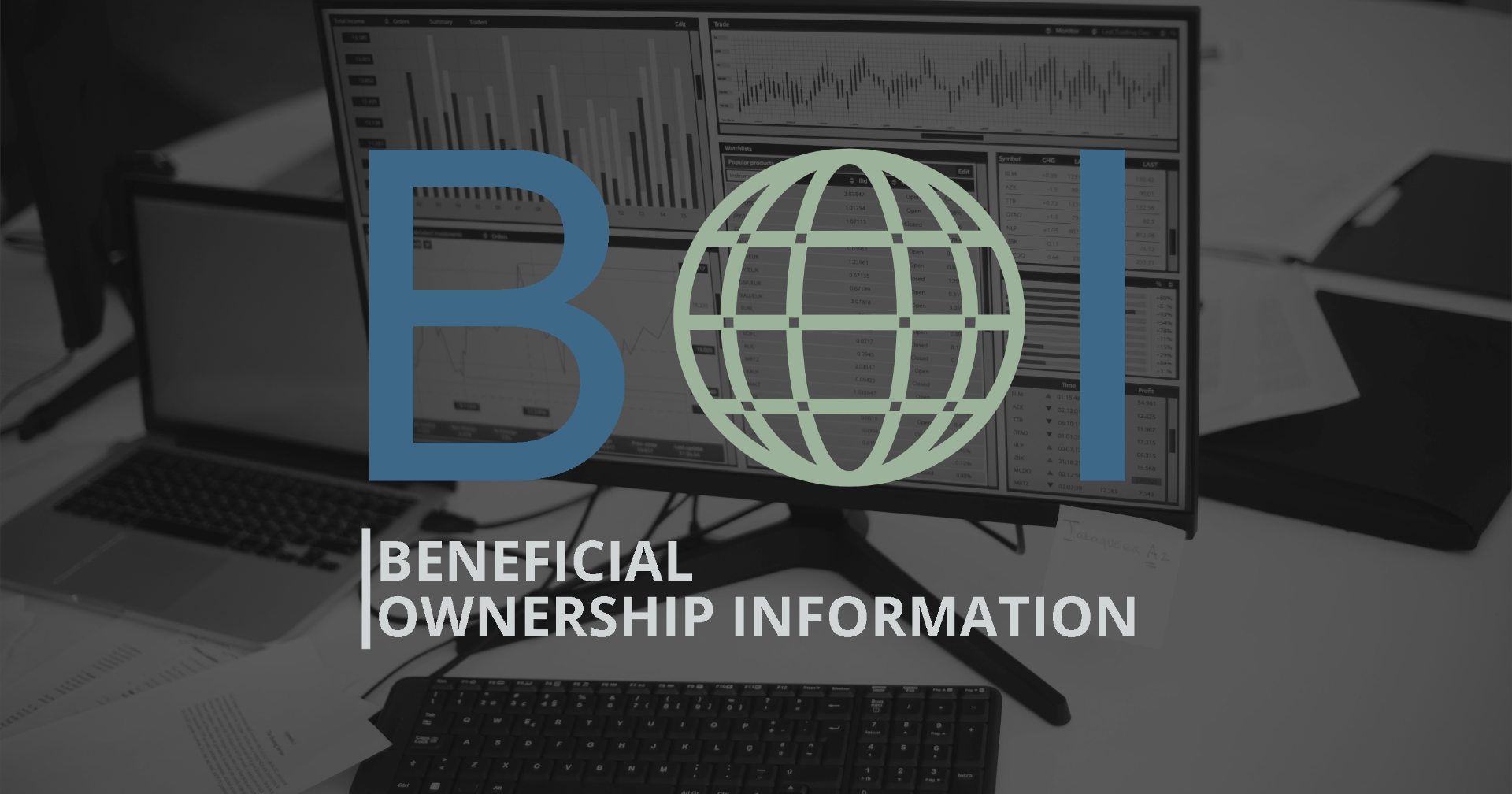
What is Beneficial Ownership Information (BOI)?
Beneficial Ownership Information (BOI) refers to the data that identifies individuals who directly or indirectly own or control a business entity. Under the Corporate Transparency Act (CTA), certain companies are required to report BOI to the Financial Crimes Enforcement Network (FinCEN) to help prevent illegal activities such as money laundering, fraud, and terrorism financing.
BOI filings provide the U.S. government with crucial information about who truly owns and controls business entities, ensuring transparency and promoting compliance within the corporate ecosystem. Entities must disclose specific details about their beneficial owners, which generally includes names, birthdates, addresses, and identification numbers.
Why is BOI Filing Important?
BOI filing is part of the broader effort to combat financial crimes and ensure corporate accountability. With an increasing focus on transparency, businesses that fail to comply with the BOI filing requirements can face significant penalties, including fines and legal consequences. The BOI system strengthens the U.S. government’s ability to track and stop criminal misuse of business entities, ensuring that corporate structures aren't used for illicit purposes.

Is Your Business Compliant? Discover If You Need to File Your BOI Report Today
Stay ahead of regulatory requirements and ensure your business meets the latest Beneficial Ownership Information (BOI) filing obligations. Use our simple questionnaire to find out if you're exempt or required to file.
Additionally, businesses must file updates if there are changes to their beneficial ownership structure.
What Information Must Be Reported?
When filing BOI, businesses need to disclose specific details about each beneficial owner. A beneficial owner is any individual who owns or controls at least 25% of the company or exercises substantial control over the business.
-
Full Name of the beneficial owner(s)
Date of birth
Residential or business address
Unique identifying number (from a passport, driver’s license, or another government-issued document)
Who Needs to File BOI?
Not all entities are required to file BOI reports. Companies that must file include most corporations, limited liability companies (LLCs), and other similar entities formed in the U.S. or registered to do business in the U.S. However, there are several exemptions to the filing requirements.
-
Corporations (unless exempt)
LLCs
Limited Partnerships
Exemptions from BOI Filing
Certain entities are exempt from BOI filing requirements, particularly those already subject to significant federal oversight or those that meet specific operational criteria. Exemptions typically apply to.
-
Publicly Traded Companies: Entities listed on the U.S. stock exchange, as they already provide similar information to the Securities and Exchange Commission (SEC).
Government-Owned Entities: Companies owned or controlled by a government entity.
Large Operating Companies: Companies with over 20 full-time employees, more than $5 million in annual gross revenue, and a physical operating presence in the U.S.
Regulated Financial Institutions: Banks, credit unions, and other financial institutions that are already subject to federal regulation.
Non-Profit Organizations: Tax-exempt organizations under section 501(c) of the Internal Revenue Code.
Inactive Entities: Companies that have not been conducting business for over 12 months and meet other criteria for inactivity.
If your business qualifies under any of these exemptions, it may not need to file a BOI report.

Penalties for Non-Compliance
Failure to comply with BOI filing requirements can result in civil and criminal penalties. Businesses that fail to file or file false or incomplete information may face fines of up to $500 per day, with maximum penalties reaching $10,000, along with imprisonment for up to two years for willful violations.
Our team of experts provides strategic advice and practical solutions for businesses looking to manage compliance efficiently and effectively. Contact JF Bicking today to ensure your business stays in line with BOI regulations and maintains a strong foundation of transparency and integrity
How JF Bicking Can Help
Navigating the complexities of BOI filing can be daunting, but JF Bicking offers comprehensive support to ensure your business remains compliant. We help you:
-
Determine whether your business is required to file BOI.
Prepare and file accurate reports in compliance with FinCEN requirements.
Stay informed about BOI filing deadlines and updates.
Avoid penalties by ensuring all beneficial ownership data is properly reported.
If you feel comfortable handling this own your own here’s the link to the form https://www.fincen.gov/boi

The Future of Corporate Accountability
As regulations evolve, so do the requirements for maintaining corporate transparency. The BOI filing is just the beginning of a broader shift towards greater accountability in business. Stay informed and stay ahead with JF Bicking.

Compliance Is Easier Than You Think
Filing your BOI report doesn't have to be complicated. With the right support and a clear understanding of the requirements, you can ensure that your business remains compliant with minimal effort. Are you ready to streamline your filing process?





